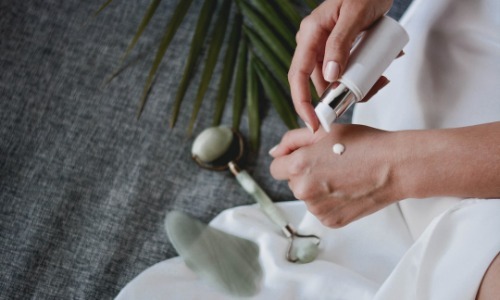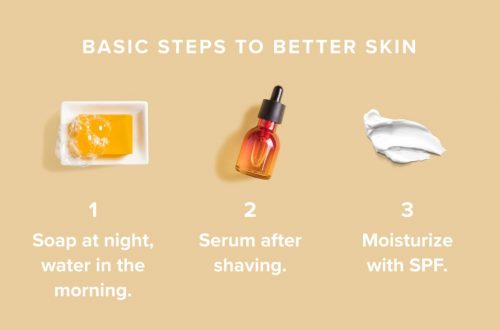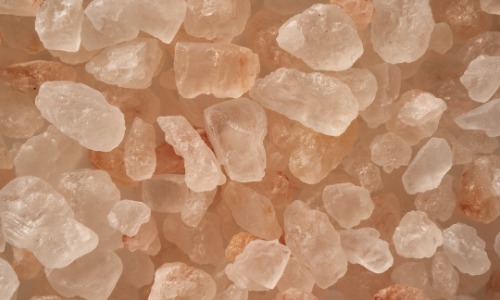
The Top Ingredients That Irritate Sensitive Skin
When shopping for a skincare routine, it’s essential to know what ingredients can irritate sensitive skin so you can avoid them.
There are a number of common skincare ingredients that may cause reactions. These include fragrances, sulfates and acids.
1. Fragrances
Fragrances, which are frequently used to scent cosmetics and other consumer items, can irritate sensitive skin or cause allergies. Furthermore, they clog pores and leave skin feeling dry and irritated.
There are two primary types of fragrances: natural and synthetic. Synthetic scents are made with chemicals which may be hazardous for skin, while natural scents come from essential oils sourced from plants.
Most skincare brands incorporate fragrance into their products in various forms. It could come from essential oil blends or be a single fragrance molecule.
Both of these can cause sensitivity and irritant contact dermatitis, leading to itching, redness, or even rashes. Fortunately, not everyone will experience a reaction to fragrance.
Dr Acharya recommends that those with sensitive or acne-prone skin avoid using fragranced products, as they may further irritate sensitive skin. She suggests testing new products before use to make sure they don’t cause an allergic reaction. She suggests performing a patch test behind the ear or on your neck to see how your skin responds.
If you are concerned about a product’s fragrance, consult your dermatologist. In most cases, opt for an unfragranced version of the same item instead.
There are also a number of fragrances which may irritate sensitive skin, such as phenoxyethanol, ethyl hexyl glycerin and phthalates. Unfortunately, these ingredients are often present in beauty products; therefore it’s essential to minimize their presence from your routine.
Another essential tip is to steer clear of products that contain denatured alcohol, which can be drying. It could also exacerbate atopic dermatitis – an inflammatory skin condition that causes itching and rashes.
2. Sulfates
Sulfates are synthetic detergents that remove dirt and oil from skin and hair, creating lather in cleansers and shampoos. You may also find them in toothpastes and hand soaps.
Sulfate-based cleaners can be beneficial to some, but those with sensitive skin may experience skin irritation, dryness and breakouts when using them. If you’re uncertain whether sulfate-based products are right for your skin type, try switching to sulfate-free alternatives for a week and see what difference it makes.
Two types of sulfates are frequently used in personal care and cleaning products: sodium lauryl sulfate (SLS) and sodium laureth sulfate (SLES). SLS adheres more tightly to skin proteins than SLES, making it more likely to irritate or cause an allergic reaction if you have sensitive skin.
Sulfates are highly effective for cleaning and washing, but they can be drying on your skin and hair, leading to flaking and clogged pores. Furthermore, they rob you of essential oils responsible for keeping skin hydrated and looking healthy.
Another issue with sulfates is they’re often derived from petroleum and palm oil, contributing to climate change, pollution and greenhouse gas emissions. Furthermore, some sulfates may be toxic for aquatic animals so it’s essential to seek out greener alternatives whenever feasible.
Sulfates are an ingredient commonly found in most cleansers, toothpaste, hand soap and dishwashing solutions. They make for a foamy lather which makes rinsing away acne more manageable. Sulfates have many uses such as foaming, spray-on, lotion or gel-based cleaners; anti-aging products and facial exfoliants also contain them.
3. Acids
Acids are essential ingredients in many skin care products, but they may be too harsh for sensitive skin types. While they’re great at exfoliating and improving skin texture, they also strip your skin of its natural oils.
If your skin is sensitive, opt for acids with weak concentrations and use them sparingly. Also, always patch test before using a new product to ensure the safety of your new purchase.
Different acids exist, such as alpha hydroxy acids (AHAs), beta hydroxy acids (BHAs) and polyhydroxy acids (PHAs). Each has its own advantages and can assist with various skin issues like acne, fine lines and wrinkles.
Finding out which acids work best for your skin requires consulting a dermatologist. They can suggest the perfect products tailored specifically towards your requirements.
Glycolic acid and salicylic acid are two of the most popular acids for exfoliation on skin. Both exfoliate by breaking down dead cells on the surface, with salicylic acid deep-cleaning clogged pores.
Important note: Some acids can make your skin more sensitive to the sun, so it’s best to protect it with a broad-spectrum sunscreen before applying them.
There are other acids not classified as AHA, BHA or PHA but still provide great benefits for your skin, such as antioxidants and anti-inflammatory properties. Examples include hyaluronic acid, azelaic acid and ferulic acid.
4. Witch Hazel
Witch hazel (Hamamelis virginiana) is an herbaceous shrub native to North America and Asia that produces a clear liquid when distilled from its bark, twigs and leaves. We commonly use this ingredient in skincare products as a preservative.
Witch hazel has many benefits, but if used in high concentrations it can irritate sensitive skin. This is especially true when combined with other ingredients known to aggravate sensitive skin such as alcohol or fragrances.
Witch hazel is commonly sold in liquid form or as part of a blemish-zapping formula within face washes, spot creams or quick cleansing pads and wipes. It also comes in gels or ointments combining it with glycerin for a soothing, comforting texture.

Dr. Hadley King, a cosmetic chemist, believes witch hazel is often problematic for sensitive skin due to its tannins–antioxidants that may irritate this group of cells.
Witch hazel can be beneficial for certain skin issues, but it isn’t the ideal solution when it comes to treating clogged pores or acne. For optimal results, witch hazel should be combined with other blemish-fighting ingredients like salicylic acid and benzoyl peroxide.
However, there are still some great products containing witch hazel that can be beneficial for sensitive skin types. Olay Oil Minimizing Clean Toner, for instance, uses a pure formula to reduce shine and irritation without drying alcohol like some traditional witch hazel toners do.
One standout from our list is InstaNatural Rose Water Toner. This formula is alcohol-free and uses lactic acid to hydrate skin without irritating it.
5. Vitamin A
If you’ve ever experienced a skin reaction after trying a new product, then you understand the significance of knowing which ingredients to avoid in sensitive skincare items. While everyone’s skin is different, there are some common detersants you should steer clear from.
Vitamin A is an essential fat-soluble vitamin that supports immunity, vision and reproduction. It can be found in both plant and animal sources alike; preformed vitamin A (retinol or retinyl palmitate) can be found in some foods like liver or eggs while provitamin-A carotenoids can be found in many fruits and vegetables.
However, it’s best to not use too much vitamin A in your skincare products since too much may lead to toxicity. Instead, opt for a gentle form of Vitamin A in your products.
Vitamin C is an incredibly potent antioxidant known for protecting against free radicals. While it’s great for your skin, be aware that it may irritate sensitive types. If you decide to use it, opt for a mild form.
Another essential ingredient you should avoid is sulfates. Sodium lauryl sulfate is often found in cleansers and makeup removers, but it can irritate sensitive skin. Sulfates can be particularly damaging for acne-prone skin when trying to fight breakouts. They may cause irritation, inflammation and redness in affected areas.




